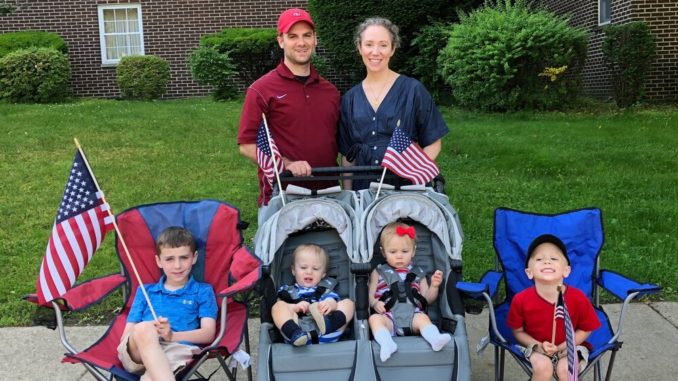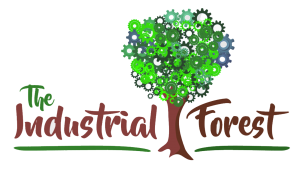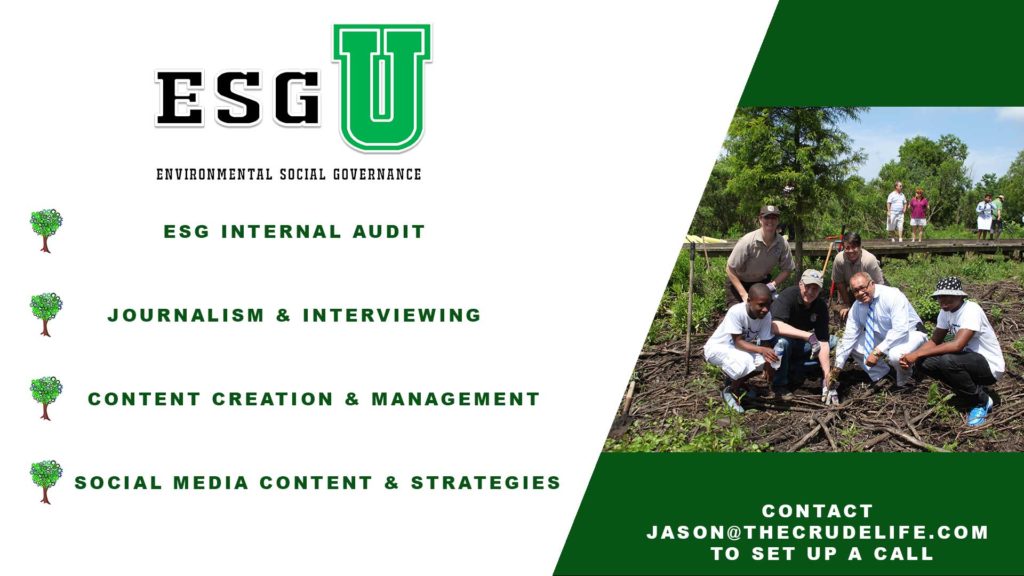

Joe Sinnott, Witting Partners and the host of The Energy Detox Podcast, joins Jason Spiess to discuss Summer Change and how businesses have to adapt and roll with the punches when kids get let out. New schedules, balancing life and work, new employees and new career paths are several themes sprinkled throughout the interview.
Jason Spiess 00:08
We’re gonna go to the phone line where we have Mr. Joe Sinnott, on the line who’s been waiting for a minute, Mr. Joe Sinnott, how you doing today?
Joe Sinnott 00:21
I’m doing all right, Jason, how’s your world today?
Jason Spiess 00:23
You know, it’s not too bad. Of course, Joe Sinnott is the host of the energy detox podcast, which is part of his company witting partners located in the Marcellus Shale play what’s going on in the Marcellus Shale play these days, we might as well start with a quick update from the East Coast.
Joe Sinnott 00:42
Right? Well, here in the Marcellus, the same story that’s been going on for years now we got a lot more gas than we can actually move out of this region, we have a whole lot of it and we don’t have the pipes to get it to the people that need it. So as you see natural gas prices rise around the country and around the world. You know, there’s still not quite as high around here just because you’ll supply and demand. So that’s the overarching themes always. Heading into next week here. We’re going to have Doug east, which is obviously Marcellus and Utica focused. So we hear a lot about supply and demand and all those kinds of things here with folks rolling into town to to chat.
Jason Spiess 01:21
Doug east, I always think of the head west young man, of course, then end up with Ed West with the Green Bay Packers. That’s how my mind works. It always goes back to sports. So dug east, Marcellus. Hey, what is going on with some of the executives, some of the workers just some of the cafe talk? I mean, when we take a look at the Marcellus that is very, very heavy, natural gas. In fact, Susquehanna County, I’m not sure if I pronounced that correctly.
Joe Sinnott 01:51
Handle will give you will give you a partial credit, Jason. It’s summer right now, when kids are out of school. It’s summer. You know what, you know, normally, the spelling bee just ended there. What last week or a couple days ago, I saw so we’ll give you partial credit. I won’t even ask you to spell it. But yeah, so.
Jason Spiess 02:06
Yeah, thank you very much that I figured since Brendon Walsh and Brandon Walsh, Miss present mispronounced why Zetta where they were apparently from, I can have a little leeway to remember the old 90210 days, I always get a kick out of when in television when people mispronounce where they’re supposedly from. So thank you for correcting my county pronunciation there. But that is the number one county I think in the world or in the United States for natural gas. So you guys are really heavy, natural gas, not a lot of oil activities, what I’m getting at so with the way the world is going with natural gas, you know, for a long time it was the foundation fuel. The government forced us to get natural gas forced air furnaces, the government forced our fleet vehicles to go natural gas LNP all kinds of different things. Is there anybody just getting upset out there that the pitchforks sharpening or the torches getting lit? What’s happening out there on that side of things?
Joe Sinnott 03:08
Well, there’s always a subset of folks with their pitchforks and who are angry, you know, that that’s universal? You can you can always find that subset. I mean, I think across the board, I would say that, look, the last several months have caused people to wake up, but it is a question of whether, you know, sort of whatever, anger and outrage and, you know, whatever attention people have given to all this weather, it’s going to be sustained. JASON So yeah, people get fired up in the moment about all kinds of things. But, you know, as you know, there’s a lot of stuff in the news, there’s a lot of stuff in the headlines, we’re, you know, our world today is not known for its attention span. So, yeah, you see some, you know, some flare ups of anger, if you will, but, you know, by and large, we’re still plugging along, people still need natural gas. It’s, it’s not going anywhere. And, and, and though again, I mean, looking forward to next week’s conversations, Doug, East, there are still a lot of unknowns, right, from a regulatory standpoint. You know, from a long term demand standpoint, the White House just announced the other day, right? With all the you know, the big push a what is it a what are they calling it a an emergency order for, you know, solar investments. So, you know, how are all these things are going to play out and impact the future natural gas? A lot of question marks Jason, a lot of question marks and, you know, people are gonna be angry no matter what, but I think there’s a lot of people who are more patient, and happy to kind of see how some of those questions will inevitably get answered.
Jason Spiess 04:40
Let’s talk about how to navigate through this because when you’re talking about the world of uncertainty, there are still some certainties. Now, there might be some uncertain choices and some uncertain scenarios that you’re not prepared for. But at the end of the day, it’s still emotion. And it’s still human behavior. So let’s talk a little bit about navigating through some of these things the other day, I was joking with a guy that, you know, for a while there, it seemed like we were going 90 mile an hour that 90 miles an hour down the interstate while we were changing our oil. Well, nowadays, it seems like we’re going 90 miles an hour down the interstate, we’re changing our oil, and our tire blew, now we got to fix our tire too, because it’s just seems like there’s one more thing, you know, the supply chain, and then the gas. And then there’s just there’s always two or three things that we just were not prepared for. But we got to keep moving. Let’s talk about how to keep moving.
Joe Sinnott 05:42
Yeah, well, I think as cliche as it is, Jason, the best way to keep moving and the best way to ensure what consistency I think is the word you throw out there is to figure out what your common goal is, you know, what’s your common destination, you want to keep moving, well figure out where the heck you’re going and ensure that you’re going to the same place. Because when it comes to a lot of the energy conversations or environmental conversations, the reality is that many cases, there’s people with different end goals in mind. And I think, you know, give credit to Alex Epstein, the author of what the you know, the new book, fossil future, and you know, previously authored was that the moral case for fossil fuels, you know, he points this out, right, if you are solely focused on the goal of protecting the earth, and you know, people are secondary, then you got a totally different definition or destination, I should say. Whereas if your goal is on lifting people out of poverty, and you know, the people aspect and helping people flourish, that’s a very different destination. Now, there’s a lot of overlap. But the problem is going back to your analogy of driving down the road and trying to change your oil, if the focus becomes on just changing the oil, or changing the fly, and all these other distractions that pop up and you forget where you’re headed? Well, guess what, you’re gonna have a lot more disagreements than you need to have. And quite frankly, you’re gonna, you’re gonna get, you know, pulled in by all these distractions, and stop asking, right? Well, what are all the different ways to help, whatever. So I got a couple different things in that answer. But the biggest thing you can do to keep moving, is to remember what your destination is, and ask yourself what all the different ways are, to get there, and whether you need to change the oil or whether you know what, we’re close enough, we want to get there on time, let’s just hop a bus the rest of the way, we’ll come back and get the car that’s broken down on the side of the road, you know, some other day, you know, that’s, that’s the kind of thinking that’s the kind of innovative mindset that you want people to have. But when they get caught up in those distractions, it’s it’s a recipe for disaster. Jason,
Jason Spiess 07:40
I suppose we should throw a couple of kids in the back tubing, it’s summer. I mean, nowadays, for those people who have families, they’ve got not not now they’re going to change direction. So you got to change your oil, you got to change your tire. And now the wife just said, Oh, honey, by the way, we forgot to drop the kids off at soccer practice. So now you got to turn directions and CO drop the kids off at soccer practice do now. So bottom line is that people are overworked. And they’re being over, you know, stimulated with distractions. And honestly, Joe, this is where people like you can really come in to help focus people. Because right now I believe more than ever, the thought worker, the intangible worker needs a service like you provide more than ever. So you know, without, you know, patting you on the back and trying to give you some super plug or something like that. Talk about your services a little bit and explain why people need them right now. Because I truly believe the average person has no idea what to think next. And again, you’re helping them navigate, you’re not telling them what to do. You’re helping them get to those decisions on their own Correct. Am I am I am I right on what you do?
Joe Sinnott 08:53
That is it. Yeah, that is a perfect summary. Basically, I do not have all of the answers. But you know, by working with someone like me, and having a resource there to just ask a couple questions to help keep you moving towards your destination, figuring out what that destination is, again, it could help and I’ll be honest, Jason, I’m laughing here. You know, we’re talking about forgetting to kid drop the kids off at soccer practice. I was just telling my wife this morning as against summer kicks off for us. But this is basically day one of of summer for us. And already we’re, you know, the logistical challenges, you know, we don’t have enough bodies and and I think we would need like four cars and you know, two other parents to help you actually solve everything. But I was joking with her this morning that, hey, you know, I think it’s inevitable this summer that we will forget to pick somebody up from a practice or some sort of engagement. So, needless to say, Jason, I need people like myself as much as as much as anybody else needs, you know, services. So all that being said, yes, no, you’re spot on in terms of how you know, a resource can help you like as bare bones. Get as many kids to practices as possible and remember to pick them up. You know, I think more important than That is one like we just talked about identifying, you know, what the overarching goal is, so you can stay focused, which for many families this summer and many businesses, right, you know, I focus on the energy industry, what is the number one focus on? Safety, right? The safety and well being of your employees? Same thing as a fan, right? You know, what’s your number one, focus safety, water safety is a big one in the summer. Certainly son, right? Protecting your kids from overexposure, and least here in Pennsylvania ticks, you know, tick checks, Lyme disease annual thing, so, you know, one remembering what your focus is. And then the second thing, Jason is, and again, I do this a lot, not just on the personal side, but mostly my day to day helping people on the business side. And that is figuring out what is essential. What is your ideal schedule to steal from Stephen Covey of seven habits for highly effective people fame, you know, from 30 years ago, what is your ideal schedule? What would your ideal summer schedule look like? What is an ideal week? Now, in the summer, at least if you know your family is as chaotic as ours? You know, everything is far from ideal, but at least figuring out hey, what would be nice? How much time would we have for, you know, times a family dinners together, exercise, you know, time for sanity, whatever, so that you know, how far you’re deviating. And so you can figure out what you can cut out? What maybe isn’t necessary, what practices can be skipped, you know, what would you be doing, if you could start from scratch? So, again, that’s just a taste of some of the things that you know, having somebody like a coach, to challenge you a bit to ask some questions to elicit your feedback, can can solve but obviously, if you’re listening to that, all of those things, what is the ideal schedule? What is the what is the number one focus for different people and different families? Clearly, it’s going to be across the board, which is why to your point, Jason, yeah, I’m not coming in and telling you what to do. But I’m there to help you discover what is going to be most effective for your family, and perhaps most importantly, hold you accountable for what you agree is the best path forward.
Jason Spiess 11:59
Joe Sinnott is our guest, he’s with wedding partners. And he also has a podcast called the Energy detox. We’re going to talk a little bit about ESG. Are you getting into that much these days?
Joe Sinnott 12:15
Well, ESG touches everything, Jason. So how I don’t know, can you brush your teeth in the morning and not have a tie in to the world of ESG.
Jason Spiess 12:22
You’re one of the few people that actually understands that that ESG really is about everything. And the last column I just wrote. And it’s funny because I, I like to send you my columns. And I’ve been so busy lately, I’ve been kind of relaxing on a few of my columns I like to send to my friends and family on my texting and that sort of thing. But I’m not sure if you’re familiar with the good place, which is what Ted Danson and Kristen Bell,
Joe Sinnott 12:49
I am not.
Jason Spiess 12:51
I would really implore you, and advise you and persuade you to go watch it. It’s the best training video there is about ESG. And there’s an example about flowers were in 1532 or 34, or something like that John Jones gives his grandmother flowers and he gets 120 points by Heaven and Hell is collaborative point system. Because he planted the flowers, he picked them himself, he walked over to his grandmother gave them to him, it was a nice gesture. But in today’s day and age, that same example of buying flowers or getting flowers to your grandmother, they go through how you actually lose points, because the flowers have pesticides, migrant workers, the carbon footprint. And all when it’s all said and done. The profits went to a billionaire CEO that’s sending unwanted 16 pictures to its females employees, it does just a great job of explaining ESG. And so on one hand, it does that. But on the other hand, it’s really training a lot of people to accept kind of a point system for ethics and morals, and things like that. So it’s kind of a couple of reasons why I’d like someone like you to watch it. But for the average person, it’s more or less to say, Hey, this is the direction they’re going with ESG. They take something as simple as giving flowers to your grandmother, and showing you exactly how ESG is. So did you follow my example with the flowers?
Joe Sinnott 14:28
Unfortunately, Jason, not only did I follow your example, but You scared me a little bit because you know, I don’t mind that we’re on this page, same page sometimes. But again, just yesterday, I asked my wife I said, Hey, these flat weeks long story short, we went on Sunday to visit local family invited us over see their new house for the first time. So my wife and I said well, what can we bring flowers. So I went to the grocery store beforehand, got a nice bouquet of flowers, wrapped them up. And then it was funny. Just yesterday, I said, you know, hey, honestly, I was a little concerned, Becky that you know, you know, I know they’re you know they You know, they’re there. They’re one with the earth. They’re great. Now they’re, they’re normal people. But, you know, is there a chance that by bringing them flowers, they’re gonna say that, hey, these flowers aren’t sustainable, you know, again, they’re, you know, they’re not sustainably sourced all these types of things. And, you know, we kind of laughed and said, No, they’re, you know, they’re, they’re normal, reasonable people. But you talk about how infectious this whole ESG thing is, it was in my mind, and again, I you know, I don’t take myself too seriously. I try not to take much too, too seriously. But your analogy certainly was not lost on me because I was just asking my wife the exact same things, what is the unintended the unwitting implications of doing a nice gesture and bringing somebody a bouquet of flowers as a housewarming gift? It’s incredible that we reached that point. And you think about the, you know, the drain the energy that is spent on organizations and everybody within an organization who are thinking like that, you multiply that throughout an entire organization? You know, it’s any wonder how anybody gets anything done, right? So, yes, your analogies, definitely check out the video. And, and again, unfortunately, the you know, the most questionable take there is our Jason and I are more aligned than I would care to be sometimes I love you, Jason. But you know, sometimes, that’s just, it’s a little scary that you might be sitting in my head or listening to my conversations here with my wife.
Jason Spiess 16:17
And that’s okay, a broken clock is right twice a day. So every now and then we get a couple right, you know, and that’s it. But I did want to say that, you know, when you’re looking at some of these different what’s the what’s the word I was looking for here? Supply chain vetting, and just some of of how the world is going. Hang on you’re one second. Sorry about that. I had a I had a burden in the studio here that just kind of flew in the industrial forest studios literally means industrial for studios.
Joe Sinnott 16:53
Is that the same bird you send out to listen in on conversations for for guests that you’re gonna be having on your show, Jason and I birds that come back and report what they’re hearing.
Jason Spiess 17:02
Messenger pitch pitch messenger. That’s a new form of social media here at the crude life. We’re trying the messenger pigeon. No. It reminds me of back when the show 30 Rock Jack Donaghy was doing he wanted the initiative to go more green and Earth Day and all these different things. And somebody was like scolding him about how he’s not green. And he goes, What do you mean, he goes every morning when I smell these fresh cut flowers flown in from from Sir Lanka, I think of the environment every day. That’s what’s your story reminded me of Jack Donaghy at 30 rockets have a nice cut fresh cut flowers from Sri Lanka, you know orchids flown in on the plane, as you know, a way to be green. And I think there’s somewhere in between there is where I think we’re going to end up not quite full hippie land. But on the other hand, not quite bringing in fresh flowers from Sarawak and saying, look how green I am this today. What do you make the about the Heaven and Hell collaborative point system. It was oh, the computer. That’s where I wanted to go. You know, when you talk about, you know, people sitting around thinking about this. It’s not though it’s the computer that’s putting this together. And then it’s kicking out a report for the people to react and for the people to judge and for the ESG czar to come in and say you’re not doing this right. But even in the good place up in heaven, the good place, it’s still a computer coming up with the total. They got like some 1980 computer from Texas Instrument that puts out a dot matrix report. It’s pretty good. So but no, I just wanted to let you know you got a Notre Dame background. So I thought I’d get you know just what your thought is about, you know, somebody taking over kind of a point system when it comes to ethics, because that’s part of ESG where we’re starting to say, is human trafficking as bad as oil and gas. I mean, that’s a weird debate to have, isn’t it?
Joe Sinnott 19:03
Yes. Weird, absurd, crazy. But you know, as for the sort of the Heaven and Hell approach, I mean, we’re everything is one side or the other black and white. I think the key is JSON as much data as is out there. And as much as computers and AI can spit out observations or recommendations. You still need that impartial judge. And again, you want to layer in the theology of Heaven and Hell, right. I mean, you can have all the data in the world up in heaven with whatever computer they’re using. But the idea is there is still a judge up there, who is using human discretion to say so what, you know, what is the big picture? How do you weigh all of this? And, you know, we are so far away from there being some magic algorithm or some 500 page directive from the federal government on you know, what, what determines whether or not a company is responsible from a you know, from a sustainability standpoint, we are So far away from that, but yet in this day and age where, again, for good reason, we’re relying on data and analysis, you know, people are running towards that and are expecting these black and white outputs, but you need somebody. And again, we’re bringing it back, I think to to companies, and what can companies do? Right? You need people within that company who can say, so what? Why does it matter? Yes, I understand X, Y, and Z, I understand the, you know, the reasons for ESG understand the talking points. But why does it matter, because at the end of the day, if we are doing something that is noble, and responsible, and helps human beings, and I firmly believe as many do that, you know, the energy industry does just that you can argue the natural gas industry in particular, we are environmentalists, we are environmentalist, you look at the impact on the environment, and certainly on people, it is a undeniable net positive but but again, coming back to what can people do, you need people in position to recognize that and to champion that, and to not find themselves sliding back into this, this faceless, you know, computer driven output, and we’re just going to go and check the box. And it’s just going to be another accounting exercise. And it’s sure it’s going to cost us millions of dollars a year as an individual company are billions of dollars a year as an industry and not actually move the needle at all, and not do what people want, which is from an investor standpoint, to make money and have returns, you know, you need somebody within these companies to challenge that and ask those questions, Jason, and in my mind today, with all this ESG stuff, will stick with stuff with all of this ESG stuff, the companies who have leaders who are willing to do that and say, so what, how can we check the box, but still move towards our ultimate goals? You know, how do we call a spade a spade, if you will, leaders who are going to be able to do that are going to differentiate themselves from the leaders who are basically just their two checkboxes to do what they’re told to adapt to, you know, inevitable regulations and never push the envelope, and never encourage their people to think, to think to connect the dots towards their ultimate mission or ultimate destination, like we talked about earlier, driving down the road. Those are the leaders who are encouraging people to think, big picture long term, they’re going to have a lot more success than sort of the alternative, who are just mindlessly going through the ESG exercises and, and trying to survive another day, you know, managing their company.
Jason Spiess 22:21
Well, let’s do a little call to action here. Let’s do a little what’s the next step because we can talk about the issues and react to what’s wrong and this and that, but one of the things that I like to do as the chief intention officer for the crude life, is I like to look at the intention of things, I like to look at the root of things. So in that example, that we gave of the flowers giving flowers to the grandmother in the modern day one. Yeah, you had the carbon footprint. Yeah, you had the the pesticides, you had the migrant workers, you had all these different things. But at the end of the day, you had the billionaire CEO that was sending unwanted sexting pictures to female employees. So let’s start there, because that’s the person that can actually change the carbon footprint, they can change the pesticides, they can change the migrant workers. But first they need to change how they’re approaching their business. And this is where Joe Sinnott comes in, because what I can do is I can help point out the intention. So this is easy. The intention is that if you stop sending unwanted dick pics, or 16 pics, or whatever they’re called these days, that’s going to free up time for you to think about some of these other issues. What do you think of that Joe? Sinnott? I mean, you do a much better job than I do. But that’s just what we do with the chief intention officer.
Joe Sinnott 23:43
Well, I’m happy to report that the overlapping analogies and anecdotes from my personal life to what you just shared, we’ve stopped there. Right. I do not have any good anecdotes to share of recent conversations about that. So back to the clock again, all right. But again, it’s what I do. It’s the name of the company, it’s you know, it’s waiting partners. The idea is, there’s lots of people who are unwittingly wasting time on whatever it is or unwittingly introducing risks that could be catastrophic. And they don’t realize it, or they don’t, you know, ask themselves how to stop or, you know, they don’t recognize the trade offs, the upside and downside, clearly, you know, whatever upside there is to, you know, inappropriate pictures and messages. I mean, clearly, whatever upside is there is outweighed by the downside by you know, 1000 fold. But, you know, again, that’s maybe somewhat of an extreme example, but how many people throughout their day to day, how many things are they doing that, you know, are unwittingly holding them back? So again, that’s that’s very much, very much what I do. That’s the majority of what I do is helping people uncover the things that are holding them back and then innovate a little bit on how to overcome those things and how to find you know, alternate paths and alternate activities and uses of their time that again, you know, don’t put them at risk. So yes, that’s the one element Jason and then the other thing I’ll say is, in terms of, hey, you know, there’s billionaires out there who have done unsavory things throughout their whole career. And they’ve survived, so to speak. And again, we here on Earth, we do bring in the theological piece about heaven, heaven and hell, that you brought up before and talk about, you know, all right, ultimate long term, but, you know, here right now, by all, you know, outward appearances, they’ve survived, but statistically, are they like that, you know, two pack a day smoker who survived 200 years old? Well, you know, that smoker defied the odds. So bringing it back, and kind of putting on my engineering cap, which was, you know, certainly my, my life for 15 years prior to transitioning into the world of coaching from an engineer standpoint, what are the odds? What can you do to increase your odds of long term success and living to 100? You know, there’s no guarantees that you’re going to, you know, run marathons and be the healthiest person and not wind up with cancer. And again, Jason, you’ve personally shared your story of that, right? I mean, there’s, there’s no guarantees, but what can you do to increase your odds of success and decrease your odds of risk? So that’s another big thing, you know, you break it down into probabilities. And it kind of breaks down sort of that that black and white, you know, yes, no kind of mindset that can trap people, you know, from, from a flower standpoint, the odds were very high that by bringing those flowers to that family the other day, or by, you know, buying flowers for your grandmother, the odds are in your favor, that that is a net positive gesture, if you can get to that point and keep moving on and making decisions, you know, unencumbered by fear that you need to make the right decision every single time, you are going to be a more effective leader. That’s, you know, that that’s it. That’s, you know, in a nutshell, you know, that is a lot of what I do when I’m helping people.
Jason Spiess 26:48
Energy detox is the name of your podcast. And that’s an interesting name, considering you know, Joe Whiddon, you do a lot, majority of your clients are energy professionals and executives, I know you go outside of the energy world, but you know, that’s where you kind of got your, you know, it’s where you started hanging your hat. So I know you do a lot with that. Let’s talk about the energy detox podcast, because the thing that I like to tell people is that he gets you to think outside the box with energy, but actually, he does more of redirecting your energy than actually detoxing it. I mean, there’s a certain purification, I think, but let’s you go ahead and plug your energy detox however you want, I plug it my way, you plug it your way, there Burger King.
Joe Sinnott 27:34
Well, the energy detox and it’s Oh, I don’t know, 60 Something episodes thus far. I do like your description of redirecting your energy. Jason, you know, it’s we have as individuals, we have a finite amount of energy. I think for all intents and purposes, from a natural gas standpoint, we got almost an infinite amount of energy when you when you look at, you know, current demand and even future demand. But setting that aside, you know, what, you do have a limited amount of time, energy resources, how can you use that to maximize your potential. And the energy detox podcast does that by weaving together, real world practical analogies, if you will, things that are going on in the news, things that are going on in the energy industry, and things that I see my day to day working with various leaders, what are the practical situations where you can redirect your energy. And, you know, we already talked a lot about you know, heading into summer, and how strapped time can be and how all over the place, you can be in your running around and, and all of these things, it’s helping people take a step back and realize the ways in which their energy is not yielding positive results. And, you know, part of the, you know, the the layer there for the title, the energy detox is, in many cases, leaders, especially the higher up they go, they are unwittingly introducing toxicity within the organization within their family, their friends, or communities, whatever it is that they’re involved in. And the sooner you can identify the ways in which your actions are leading to toxicity, which can be cancerous to, to you know, lay your back in that analogy, again, the sooner you can realize it, and nip it in the bud and find ways to redirect, the better off you’re going to be. And my intent with those podcasts is to do just that. But again, to do it in a practical way that is differentiated from the millions of other podcasts and books and blogs and webinars and seminars and leadership courses and gurus and everything else that’s out there, all good stuff, all things from a from a leadership standpoint, from a self help standpoint, but my focus is on the energy industry. And it is on taking again this this practical approach which very much mirrors the energy industry in many ways, and certainly, you know, my background having led technical teams and been in technical roles, and
Jason Spiess 29:51
how can people get in touch with you and get some of your services and that sort of thing? You know, what, what, what does someone do if they want to engage with your services who, who generally makes that call? Is it HR is the executive itself? Is it marketing who does that?
Joe Sinnott 30:08
Typically, it’s HR HR would be the majority of folks that reach out. I still work on occasion with folks that are in career transition. So don’t get some one off, people that are looking to leave a job are in between jobs. So they might reach out and and on occasion, I’ll get somebody you know, within a team that’s currently employed and kind of know that they want coaching and they’re looking at different options. But by and large, a lot of those folks are already, you know, having gone to their human resources, folks who, you know, would be more familiar with resources. So it’s a mix of things, in terms of how to reach out the website in terms of you know, getting information waiting, partners.com w i, t t i n g partners, is obviously a good place to go. But I prefer reaching out on LinkedIn asking you a question, starting a conversation, not waiting. Yeah, you can go on my website, and you can find a window and schedule a meeting and all that. But, but again, we’re gonna talk about moving forward, Jason, like the car analogy before you want to head towards your destination. I’m not afraid of a good old fashioned phone call, you got a question? You’re curious, pick up the phone, I might answer I might not you can leave a voicemail. You know, despite being a qualifying as a millennial, I’m not afraid of a voicemail. But, you know, do whatever makes the most sense. But, you know, for all that contact information, everything else the website, and again, always happy to connect with folks on LinkedIn. It’s
Jason Spiess 31:28
always a pleasure, sir. Appreciate the time today. And any final thoughts as we get ready for summer?
Joe Sinnott 31:35
Think the final thought, again, you know, we talked about earlier, one of the the important things both in summer as a parent as a family and also as a leader is focus a lot of new distractions, a lot of new patterns, keep your focus on safety. And, you know, I’d say one of the biggest things, and this is fresh in the mind, because, you know, sadly, I heard it on the news, you know, child drowning, it was one of those babies sitting by commission situations, right? Where you have so many people around where it you know, what’s the old saying, when everybody’s watching the child, nobody’s watching the child and unfortunately, you know, a young child drowned and you hear those stories throughout the summer. So sort of a safety warning for parents and anybody out there to make sure you’re mindful of the the dangers of babysitting by committee, but also from a leadership standpoint, I see it all the time as well, you know, less catastrophic results, certainly, then the loss of a child, but, you know, be mindful of those times when you have all these distractions, and lots of things are going on that, you know, you might be assuming that things are getting taken care of important tasks are being taken care of. But is it just, you know, this sort of babysitting by committee exercise that’s going on with an organization that can lead to balls being dropped and, and things going wrong? So that’s my final again, sorry, sorry to end things on sort of a somber note, but you know, I did just hear a recent story there. And unfortunately, the parallels from the business world to the personal world are strong and I see it all the time. So be mindful, stay focused, and of course, have a very happy and enjoyable summer.
Sponsors, Music and Other Show Notes

Studio Sponsor: The Industrial Forest
The Industrial Forest is a network of environmentally minded and socially conscious businesses that are using industrial innovations to build a network of sustainable forests across the United States.
Weekly Sponsor: KBL Complete Services
Strikingly dynamic, incomparably strong and absolutely reliable, KBL Complete Services excels at all of your pipeline needs. From AGM Surveys, ILI tool tracking, Digsite Locating, and Equipment Decontamination, to Project Management, KBL Complete Services are ready to make your project a success.

Weekly Sponsor: Great American Mining Co
Great American Mining monetizes wasted, stranded and undervalued gas throughout the oil and gas industry by using it as a power generation source for bitcoin mining. We bring the market and our expertise to the molecule. Our solutions make producers more efficient and profitable while helping to reduce flaring and venting throughout the oil and gas value chain.

Join Podcasters from across the world and all walks of life as they unite to bring civil solutions to life and liberty.

Studio Email and Inbox Sponsor: To Be Announced

Featured Music: Alma Cook
For guest, band or show topic requests, email studio@thecrudelife.com
Spread the word. Support the industry. Share the energy.



